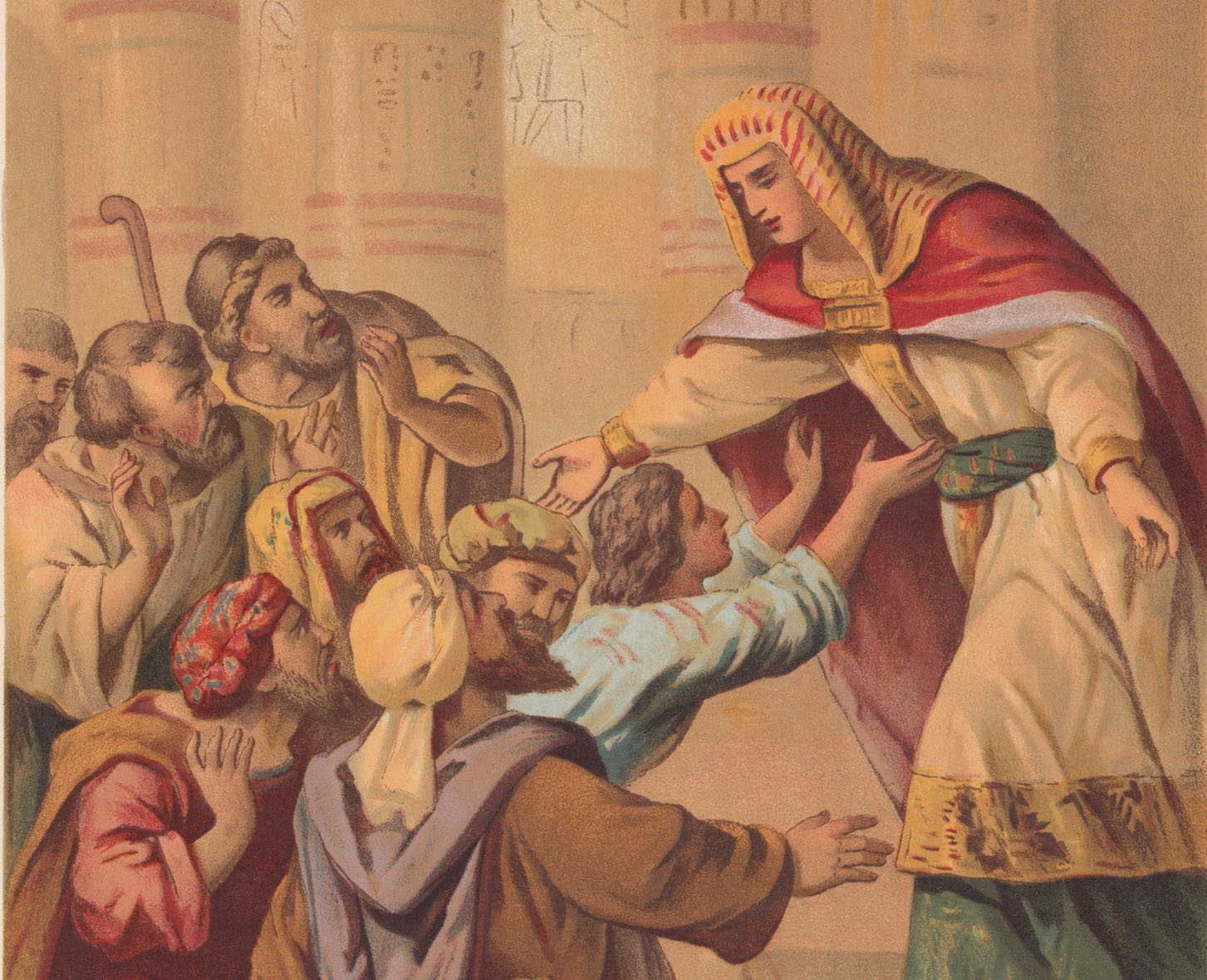 Joseph Forgives His Brothers (Genesis 45). Chromolithograph, published, in 1886.
Joseph Forgives His Brothers (Genesis 45). Chromolithograph, published, in 1886. Our secular year is finally coming to an end. This is among the many blessings I am grateful for. 2020 has tested each of us in ways we could never imagine. Whether in lockdown, masked, jobless, touched by illness or the loss of a loved one, challenged as parents, learning new technical skills, mastering unknown platforms for work or dodging the COVID-19 bullet — we have faced personal and spiritual affliction.
The end of 2020 also coincides with the end of the first book of Torah, Bereshit. We end the book with the Joseph saga, an odyssey where personal trial and tribulations accompany a cocky, handsome and, at times, arrogant young man who has alienated 10 of his 11 brothers, arousing vile contempt. The twelve sons of Jacob, who was renamed Yisrael, are the prodigy and future that are to become the twelve tribes of Israel.
Joseph’s journey turns horrific when he hears his brothers’ plot to kill him. Instead, the brothers decide to throw Joseph in a pit, empty of water, hoping he’ll die naturally. But even then, they turn to a different, yet still sinister plot: to sell him to a passing caravan as a slave and let fate determine his future. Once in Egypt, Joseph is sold and works for the courtier of Pharaoh, Potifar, until his wife tries to seduce him. When he fends off her attempts, she cries rape, and Potifar then sends him to prison.
As I pondered this year, I began to think of its parallels with Joseph’s loss, grief, fear and trauma as he was betrayed, abandoned, enslaved and imprisoned. Though living in a pandemic — with all of its attenuating disasters — isn’t the same as one person’s journey into darkness, the Torah teaches important lessons through Joseph’s transformation that can help us on our own voyage into the depths.
Joseph’s transformation can help us on our own voyage into the depths.
Bruno Bettelheim, the psychologist who focused on child development, says, “to the degree to which we maintain a comprehensive vision of who we are and why we need to survive, we remain more resilient.” Joseph was able to see the greater purpose of his suffering. We have the same choices with how we respond to difficulty and adversity.
Joseph, the once arrogant, narcissistic and spoiled young man, seems to become refined and smelted down to his pure essence. The rejection and tragic experiences didn’t leave him with anger, recrimination or a need for revenge. A softer, humbler and more empathic human being emerges. More importantly, Joseph sees the dark and painful moments of his life as part of a bigger plan, one that he believes God had set into motion. When he faces down his brothers when they come to Egypt to purchase food because of the vast famine, Joseph offers kindness and forgiveness for their horrific actions. “Don’t be distressed… it was not you who sent me here, but God…”
Maintaining such faith in the face of adversity is no easy task. But reading about Joseph’s transformation in times of darkness should prompt us to ask how we, too, have changed in this abhorrent year: What have we learned and how have we grown? Have we softened, been refined, and tapped into humility? Do we recognize, with gratitude, the unexpected moments that lit and expanded our souls?
As we head into 2021, with new possibilities and a vital vaccine to temper the virus, we need to embrace the strength and resilience that has held us up during these difficult months; we need to honor our wisdom and discernment that continually directed us to choose the path to health and life; we need to show compassion for our weaker moments and lack of perfection; and we need to acknowledge those around us who have supported and shared such an ominous and arduous path.
Like Joseph who sees the Divine in his story, even in the bitter and the ugly, there may be a plan far greater than any one of us can understand. To make meaning out of challenge is the Jewish raison d’etre. To find purpose and blessing even in difficulty is what we do best. My Bubbe Faye once told me that when it was Pesach one year in Auschwitz, she chose not to eat the little bit of bread she had to honor the holiday. In her hunger and degradation, she chose dignity and hope, if only for a moment.
L’chaim, “to life,” is our toast this year. Hope and gratitude must carry us into the next one.
Eva Robbins is a rabbi, cantor, artist and the author of “Spiritual Surgery: A Journey of Healing Mind, Body and Spirit.”






















 More news and opinions than at a Shabbat dinner, right in your inbox.
More news and opinions than at a Shabbat dinner, right in your inbox.